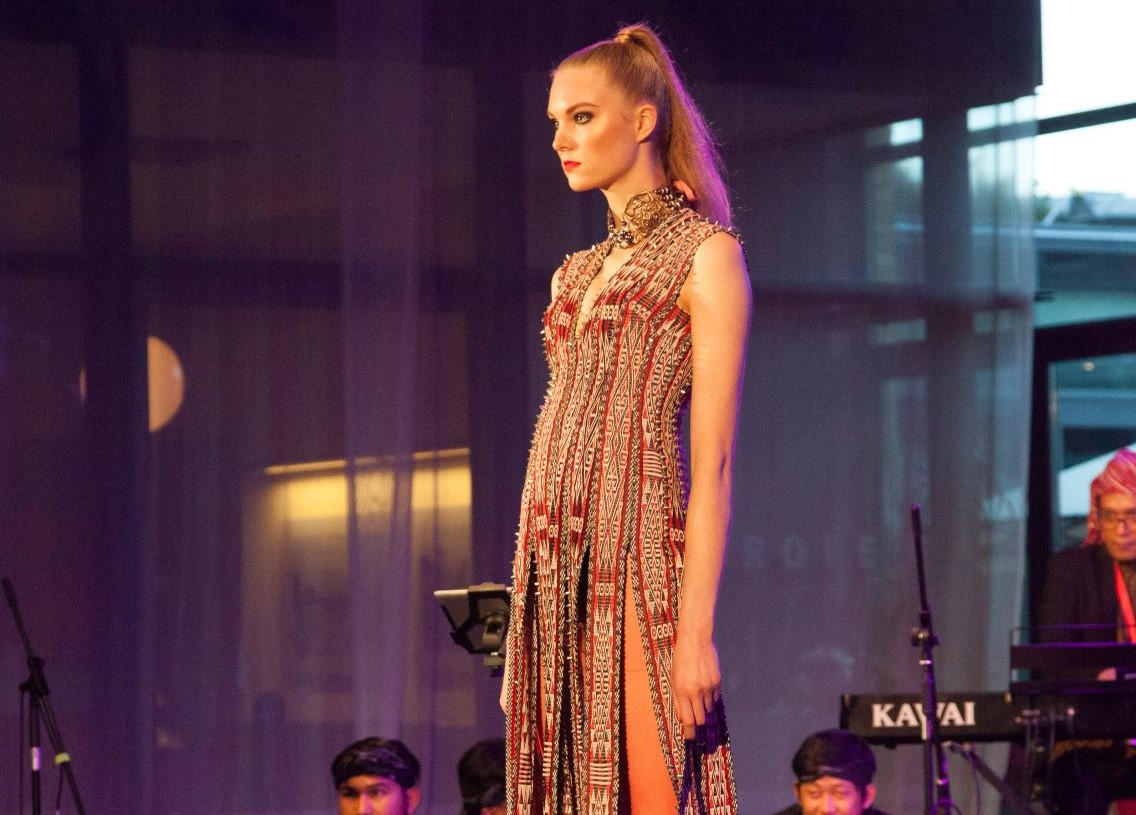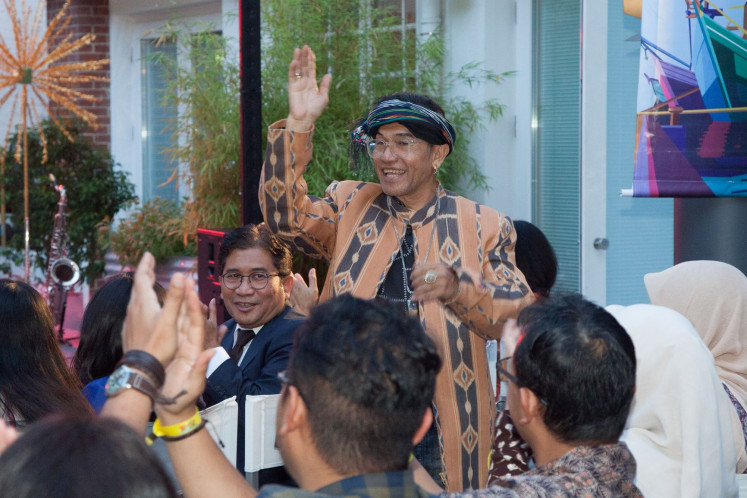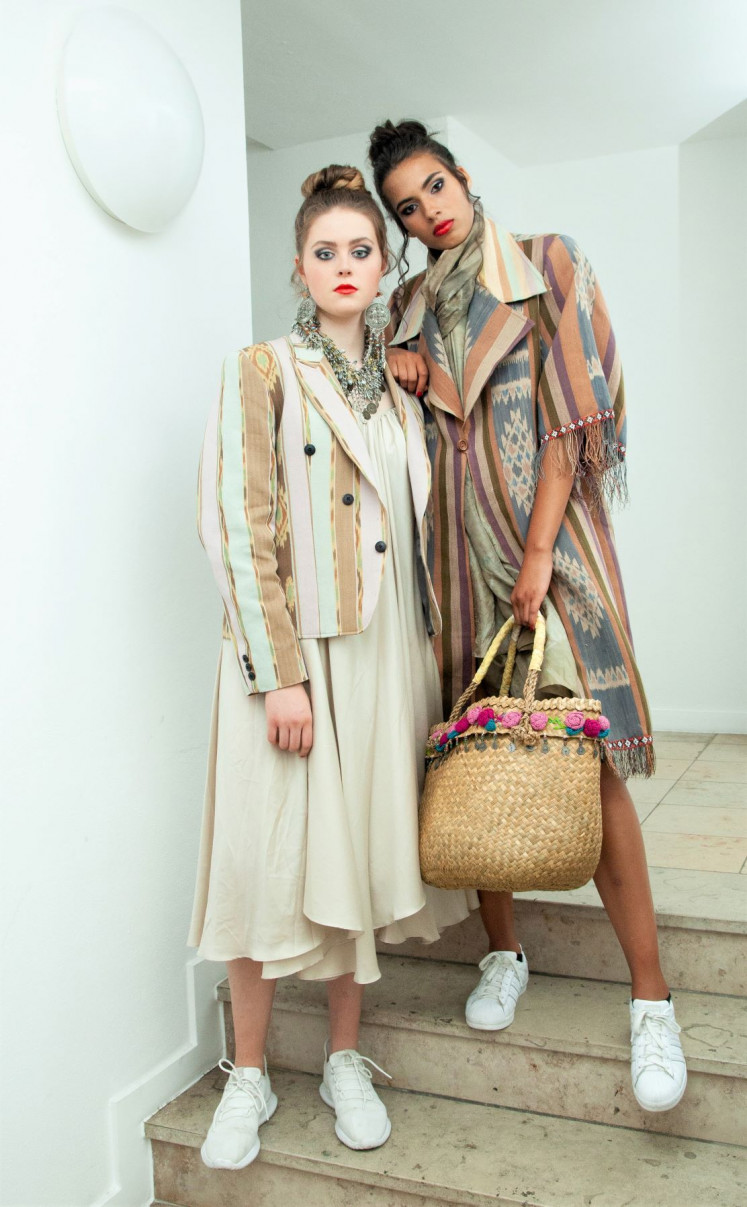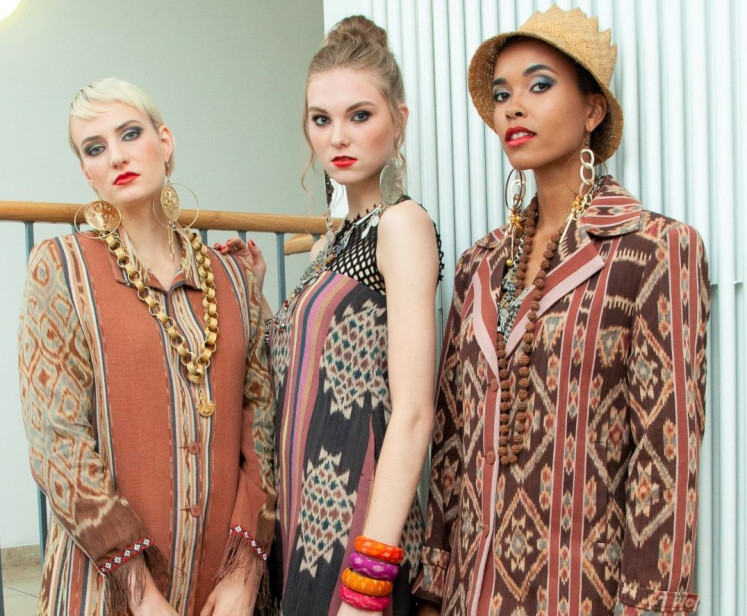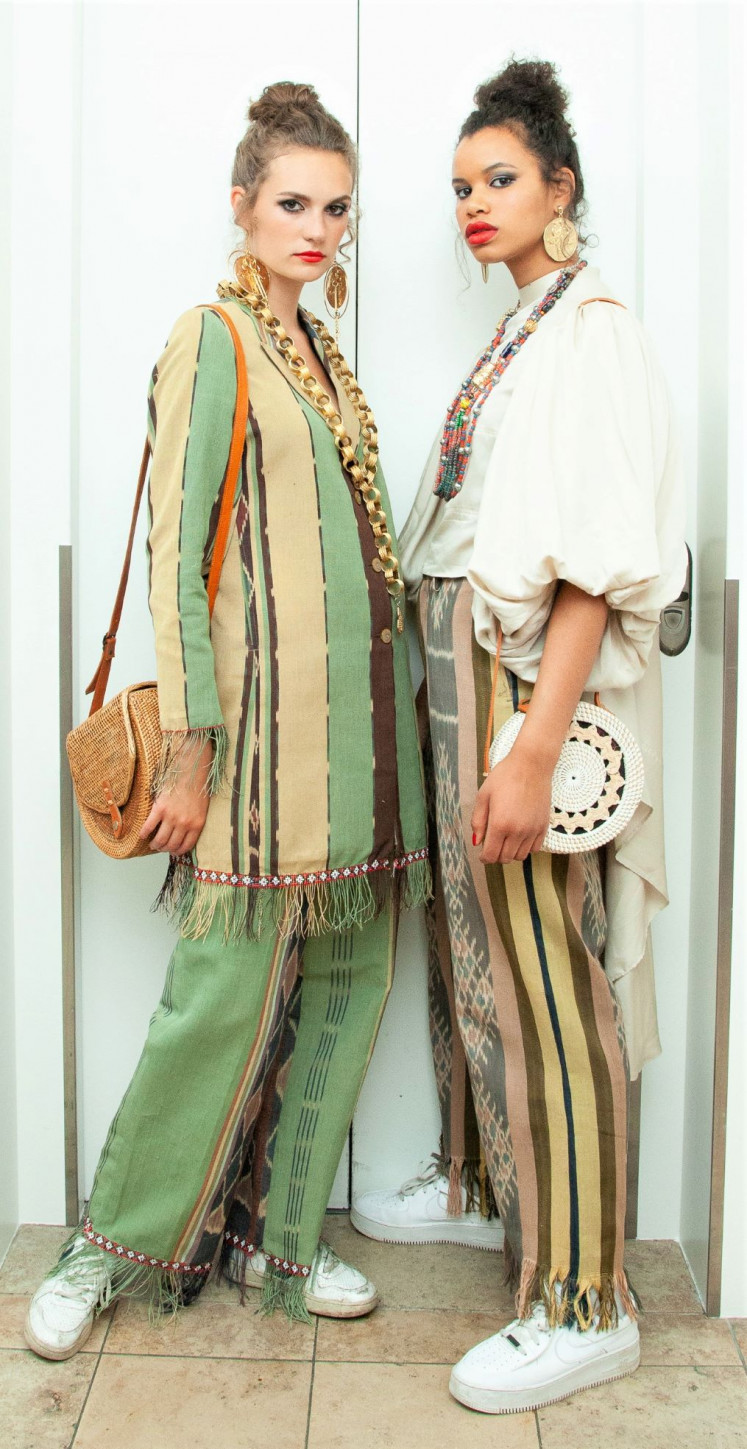Popular Reads
Top Results
Can't find what you're looking for?
View all search resultsPopular Reads
Top Results
Can't find what you're looking for?
View all search resultsEco fashion: Merdi Sihombing’s passion project
Renowned designer Merdi Sihombing speaks about pioneering eco and vegan fashion in Indonesia and supporting community development in the most remote areas of the country.
Change text size
Gift Premium Articles
to Anyone
S
ustainable fashion is now a common trend in the industry, with many designers and brands supporting ecological integrity and social justice. In Indonesia, Merdi Sihombing was one of the first to dive into the world of eco-fashion.
During a recent visit to Berlin, organized by the Jakarta Tourism and Culture Office as part of the celebration of the 25th anniversary of Berlin and Jakarta as sister cities, Merdi was invited as a representative of the Indonesian fashion industry and introduced his Alor and Batak collection to the German audience – a great opportunity for him to take further steps on the global stage after already having participated in fashion shows and exhibitions in London, Bangladesh and New York.
A true pioneer: The fashion designer has been widely credited for introducing eco and vegan fashion to a wider audience in Indonesia. (Courtesy of Merdi Sihombing/-)Born in Medan, North Sumatra, as the third child of four siblings to a Batak father and Ambonese mother, Merdi moved to Jakarta to study at the Bunka Fashion and Design School as well at ESMOD. In 2001, he continued his studies at the Jakarta Arts Institute (IKJ), specializing in textiles.
“While I was a student at the IKJ, I traveled to the Baduy region to the first time with a couple of friends,” he said. “That was a turning point for me.”
The Baduy are a traditional Bantenese community who live isolated from the rest of the world, following an ancient way of life, customs and traditions. Merdi became interested in the Baduy’s traditional clothing and special textiles that they use for rituals and ceremonies.
International success: Merdi's fashion shows in Berlin were followed by an event in Belgium, where he highlighted sustainable fashion from Indonesia. (Courtesy of Merdi Sihombing/-)For three years, he traveled back and forth between Jakarta and the Baduy region to work together with the people and learn more about their fabrics.
“I was very lucky because they are usually not too open when it comes to strangers, but after three years, their chief gave me permission to promote their textiles and use them for my show,” he said.
Afterward, Merdi began to explore other remote areas in Indonesia, always looking for new inspiration and a growing desire to preserve local traditions and techniques, as well as to support local communities, especially women.
“I help them to develop their products and show them know how to produce sustainably,” Merdi explained. He is mostly welcomed with open arms, he added.
“It’s not easy for them, they dream about having better lives, and I do my best to help them achieve that dream,” he said. “It has become my passion.”
A few years ago, Merdi branched out into vegan fashion when he was working in the region of Alor in East Nusa Tenggara.
“I encountered the people of Umapura, an atoll island,” he recalled. “There is no electricity and they only have one water well that is used by hundreds of locals. The men are mostly fishermen, and the women weave ikats as they have learned from their ancestors from Ternate Island.”
Strike a pose: Models wear Merdi Sihombing's designs during a photoshoot prior to his Berlin fashion show. (Courtesy of Merdi Sihombing/-)To color their woven fabrics, Merdi and the locals use only natural sources: plants from the forest as well as sea cucumbers and several types of marine biota from the ocean, following the concept of zero waste.
“We engage in a transfer of knowledge while developing new products together,” he said. “For instance, I tell them about new yarn and fiber they can use, and later help them to bring the products to big cities like Jakarta and hopefully someday to the global market.”
Many of the women who live on the island are already old but they still need to work because their livelihoods depend on it. They often do not have the strength or energy to weave anymore but Merdi makes sure to give them easier tasks so they can still have an income.
“After we develop a product, I buy it from them, with fair trade principles,” he explained. “It’s all very transparent. I teach them how to put the right price on their products, and then I bring some of the weavers, mainly the younger generation, to Jakarta to meet the buyers. For many of them, it is the first time for them to travel by plane or to stay in a hotel.”
Going local: For his collections, Merdi works closely with local communities, using natural sources only to color the woven fabrics. (Courtesy of Merdi Sihombing/-)Merdi also applies the vegan concept in his own designs. Over the years, he has made a name for himself as the pioneer of sustainable fashion in Indonesia – a trend that is now followed by many young designers.
“I’m very happy about this development. I really don’t think about competition but am mostly glad that new and young designers care about the environment as much as I do,” said Merdi, who also has a weaving center in Lake Toba.
Last year, he launched the inaugural Fashion Week Indonesia. In October, the event was held in Antwerp, Belgium, with a couple of fashion shows highlighting sustainable fashion from the archipelago and a pop-up store that will be open to customers for four months.
“We wanted the global market to learn more about the sustainable fashion industry in Indonesia, because it is such a huge and rich country and has so much to offer,” Merdi added. “It was also an opportunity to introduce other products from Indonesia, such as coffee.”
In the future, he will continue to work with local communities, specifically those who have been affected by natural disasters.
“This is about much more than just fashion,” he said. “People say, when you travel far and see a lot of things, you will be smarter, and I believe that too.” (ste)

